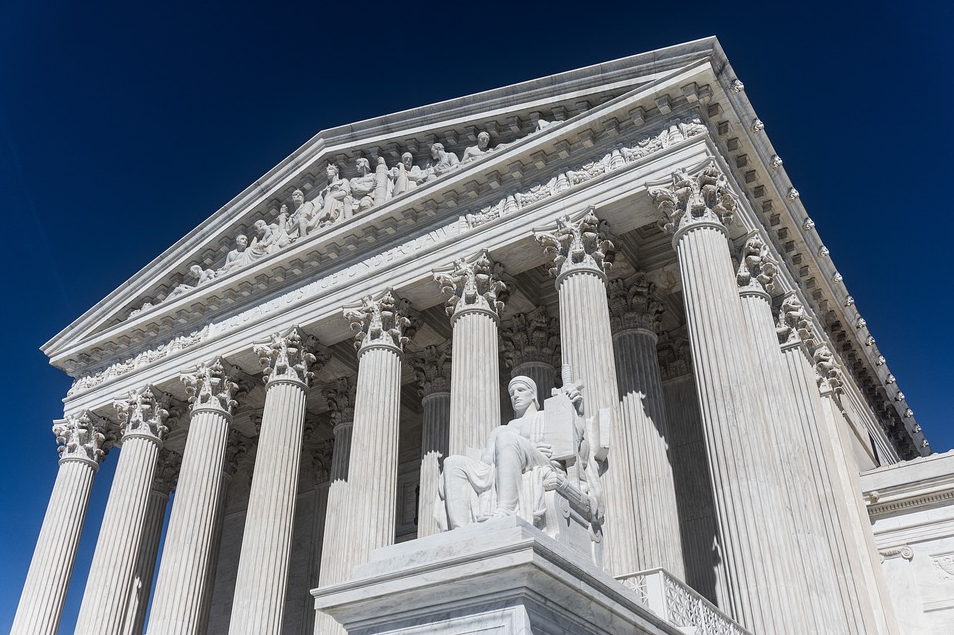
The following post by Authors Alliance Copyright Research Assistant Nicolas Charest provides an overview of Georgia v. Public.Resource.Org Inc. Today, the Supreme Court of the United States will hear oral arguments in this case, which examines whether the “government edicts” doctrine extends to the Official Code of Georgia Annotated, rendering it uncopyrightable.
Background
The Code Revision Commission (the “Commission”), an arm of the State of Georgia’s General Assembly, is mandated to ensure publication of the statutes adopted by the General Assembly. It does so by contracting with the LexisNexis Group (“Lexis”) to maintain, publish, and distribute the Official Code of Georgia Annotated (“OCGA”), an annotated compilation of Georgia’s statutes. Following guidelines provided by the Commission, Lexis prepares and sells OCGA, which includes the statutory text of Georgia’s laws and annotations (such as summaries of judicial decisions interpreting or applying particular statutes). Lexis also makes unannotated versions of the statutes available online.
Public.Resource.Org (“PRO”) is a non-profit organization that promotes access to government records and primary legal materials. PRO makes government documents available online, including the official codes and other rules, regulations, and standards legally adopted by federal, state, and local authorities, giving the public free access to these documents. PRO purchased printed copies of the OCGA, digitized its content, and posted copies online through its own website.
Georgia filed suit against PRO claiming copyright infringement. Before the lower courts, PRO invoked the judicially-created “government edicts” doctrine. As a matter of public policy, courts have held that government edicts having the force of law, such as statutes and judicial decisions, are not eligible for copyright protection. While the court of first instance agreed with the State of Georgia and the OCGA was found to be copyrightable, on appeal the Eleventh Circuit held that under the government edicts doctrine, OCGA is not copyrightable and rejected Georgia’s infringement claim against PRO. Now, the issue before the Supreme Court is whether Georgia can claim copyrights over the OCGA annotations or if it is prevented from doing so because the annotations are an edict of government.
Position of the Parties
The State of Georgia and the Georgia Code Revision Commission submit that the annotations are not excluded from copyright protection; the annotations lack the force of law and therefore do not trigger the government edicts doctrine. Georgia also argues that the annotations are “derivative works” from the statutes and though published alongside materials in the public domain, they nonetheless are produced by a private entity. Finally, Georgia states that copyright in the annotations is the underlying incentive for its partnership with Lexis and, absent copyright protection for OCGA, Lexis would lose incentive to produce the annotations unless Georgia used taxpayer funds to directly pay for the services.
Public.Resource.Org argues that, in addition to texts with binding legal effect, any works that represent an “authentic” exercise of state legal authority, including legal works adopted or published under the authority of the state, are uncopyrightable edicts of government and therefore cannot be copyrighted. They posit that as long as the documents embody the authority of the state, such works would not be subject to copyright, even if they do not have legal force. PRO concludes that since the OCGA is an official legal document that holds itself out as “published under the authority of the State,” it is therefore a government edict that is ineligible for copyright protection.
Next Steps
Audio of the oral arguments in Georgia v. Public.Resource.Org should be available on the website of the Supreme Court on Friday. We encourage members of Authors Alliance to contact us at info@authorsalliance.org to share your views on the implications and outcome of this case. We will provide an update once the Court issues its decision in this case.
Discover more from Authors Alliance
Subscribe to get the latest posts sent to your email.
